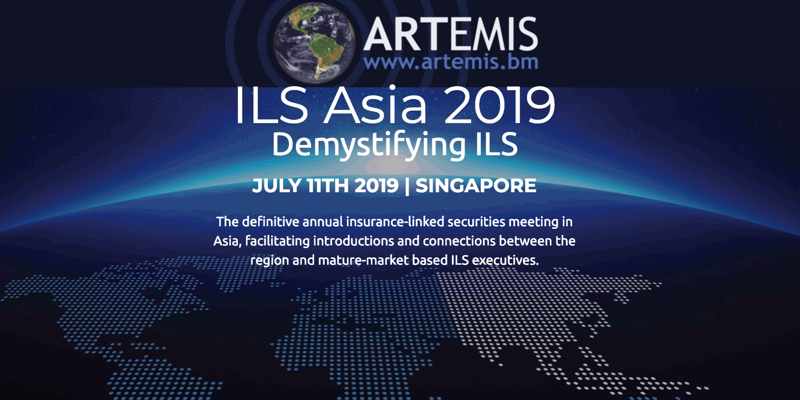A collaboration between Oxfam in Sri Lanka, insurance and reinsurance broker Aon and insurtech blockchain solutions provider Etherisc has delivered a parametric weather insurance product that will make automated payouts to smallholder farmers.
 The trio, alongside local insurer Sanasa, have launched and begun enrolling farmers into a blockchain-based platform that will provide microinsurance to protect smallholder paddy field farmers in Sri Lanka against the risk of losing their crops due to extreme weather.
The trio, alongside local insurer Sanasa, have launched and begun enrolling farmers into a blockchain-based platform that will provide microinsurance to protect smallholder paddy field farmers in Sri Lanka against the risk of losing their crops due to extreme weather.
Almost 200 farmers have enrolled in the program already, which brings together established weather risk and index insurance methods, along with a blockchain based solution for automating claims and payouts.
The product will deliver protection based on rainfall data, so can provide parametric insurance against the impacts of both floods and drought, with an index that derives payouts based on rainfall data established by a third-party and payouts based on a sliding scale, dependent on severity.
“Oxfam in Sri Lanka expertise in climate-smart agriculture and our long-standing engagement with farmer communities, provides us with in-depth knowledge about the opportunities and challenges that farmers have to climate and weather events,” commented Bojan Kolundzija, the Country Director of Oxfam in Sri Lanka. “Allowing farmers to access the blockchain platform is an important milestone that is bringing an effective and affordable risk transfer mechanism to a large portion of the Sri Lanka economy.”
Affordability of insurance for agriculture, especially for smallholders, as well as the reliability of payouts, have hindered uptake of weather insurance solutions generally.
Parametric risk transfer, where weather data is used to determine whether a payout is due or not, means predictability and reliability should be assured, while affordability can be assisted through embracing a technological approach to delivery of the product and settlement of claims, through lower expenses.
Whether a “blockchain” is actually required is unclear, as a similar technology framework with automatic payments can be created using any database solution.
Development agencies have already proven that low-cost parametric insurance with automated payouts can work and work well long before the blockchain emerged as a focus in insurance, as evidenced by Kilimo Salama product that utilised the mobile phone payment system M-PESA and related projects in Africa.
Importantly though, the Etherisc platform does help to ensure transparency through the claims process, but only if that information is surfaced of course. That’s down to the implementation of a blockchain solution, as it’s just as easy to obscure key information as to share it.
It can also reduce the administrative costs related to the parametric insurance product, which means a higher percentage of premiums can actually go towards payouts. Although again, this could be achieved with other technology solutions. Of course, any reduction in administrative costs also means potentially higher profits for those involved when payouts do not occur.
Aon put is expertise in global reinsurance to good use in assisting in the delivery of the product, while Oxfam’s deep engagement with the local farming community enabled its roll-out.
Hugo Wegbrans, the Chief Broking Officer of Europe, Middle East & Africa for Aon, said, “Strong collaboration, such as this initiative with Oxfam and Etherisc, allows us to broaden the potential positive impact we can have on people, families and small businesses around the globe. At the heart of our work is a mission to empower economic and human possibility – and that is exactly what we are doing here.”
Michiel Berende, the Chief Inclusive Officer at Etherisc, stated, “Farmers represent a third of the workforce and account for almost 20 percent of the economy, yet very few have insurance. This made Sri Lanka a perfect candidate to feel the benefits of decentralized, collaborative and automated insurance. This alliance is really a cooperation between all and showcases blockchain for social good.”
Utilising risk transfer technology, by which we mean parametric insurance practices backed by efficient reinsurance capital, can help to narrow global protection gaps.
But as we explained the other day, there is a lot that needs to go into rethinking the insurance product in the first place and unbundling of the transaction costs through the value-chain, for these initiatives to have the efficiency required to gain serious traction.
———–
 Get your ticket to attend our next ILS conference in Singapore, ILS Asia 2019.
Get your ticket to attend our next ILS conference in Singapore, ILS Asia 2019.
We’re returning to Singapore for our fourth annual ILS market conference for the Asia region on July 11th 2019.
Please register today to secure your place at the conference. Tickets are now selling fast.
 View all of our Artemis Live video interviews and subscribe to our podcast.
View all of our Artemis Live video interviews and subscribe to our podcast.
All of our Artemis Live insurance-linked securities (ILS), catastrophe bonds and reinsurance video content and video interviews can be accessed online.
Our Artemis Live podcast can be subscribed to using the typical podcast services providers, including Apple, Google, Spotify and more.































